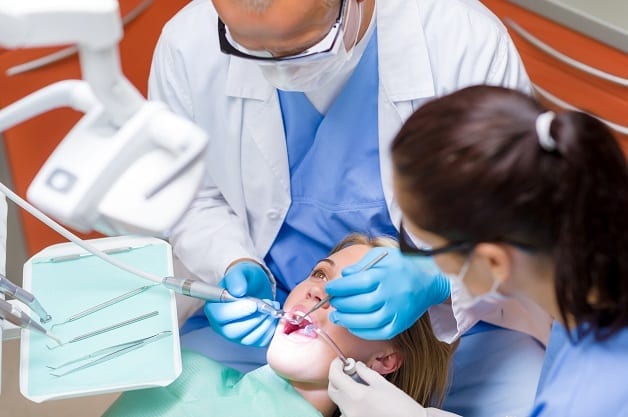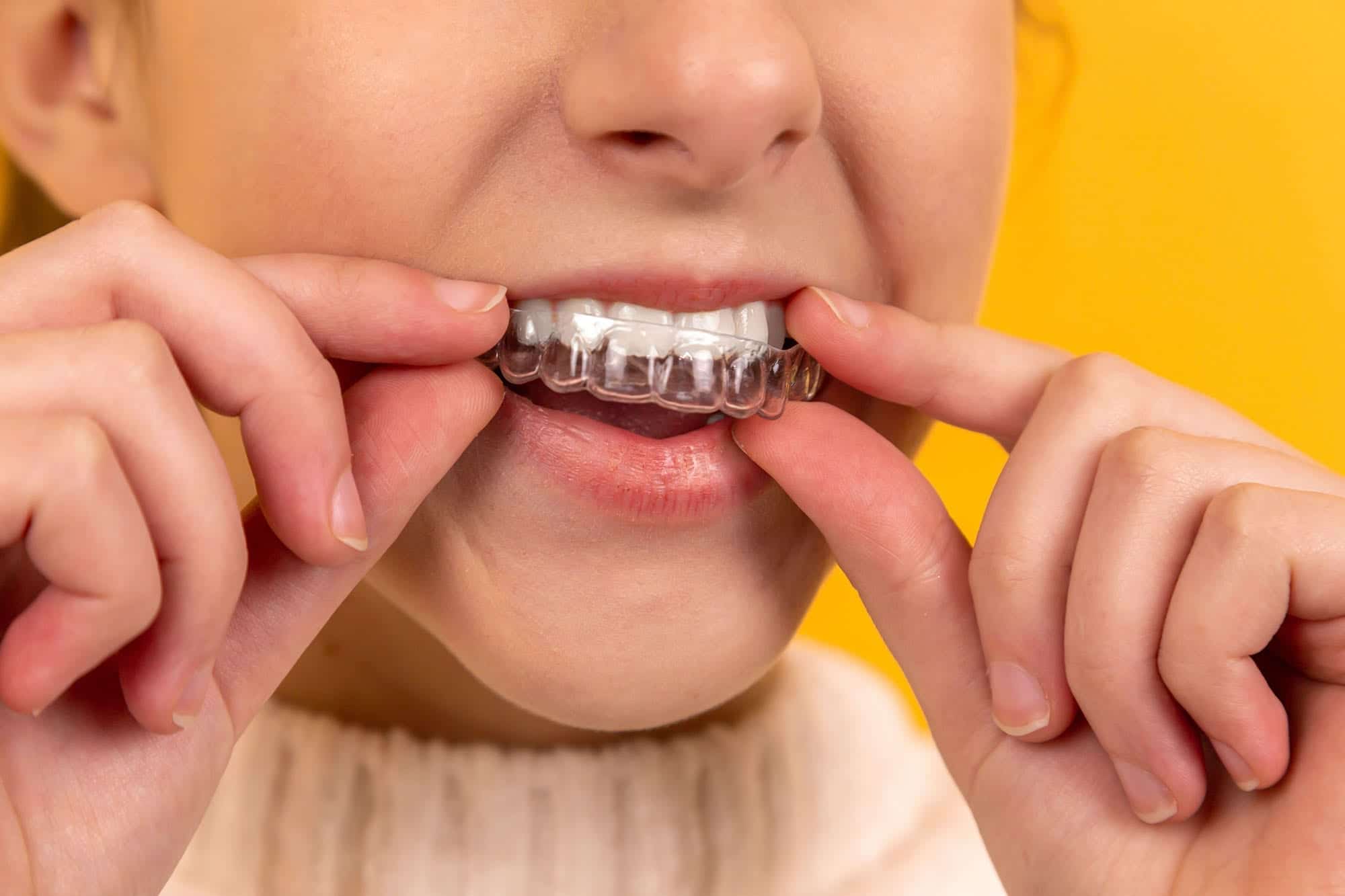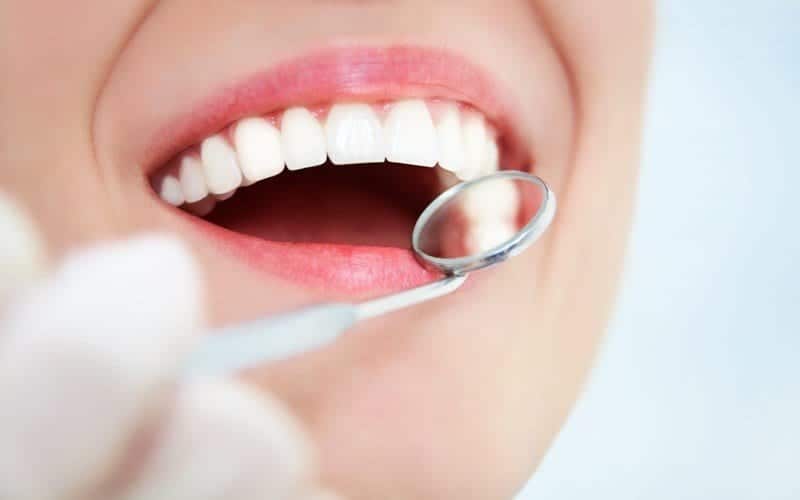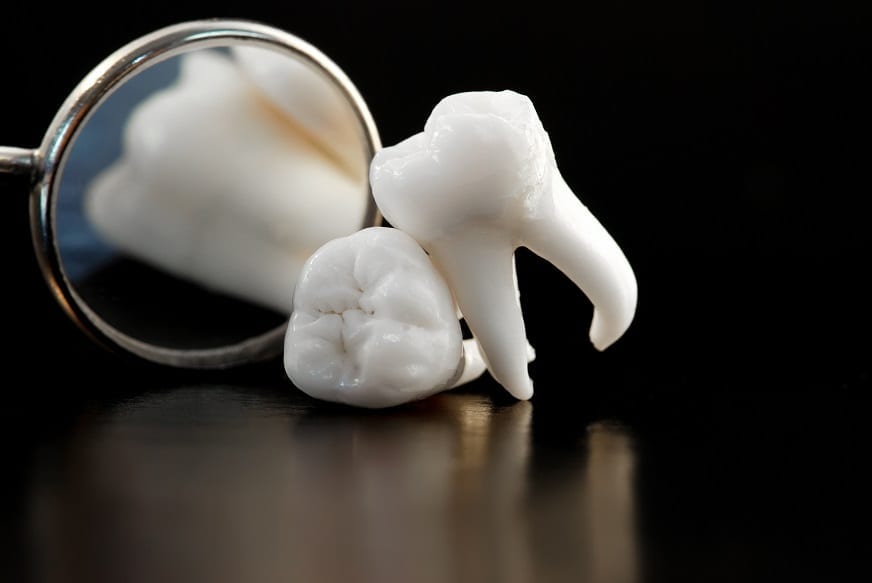The third molars at the back of your mouth—your wisdom teeth—can become impacted if there isn’t enough room for them to emerge or erupt from the gumline and develop in a normal fashion. Impaction is when the wisdom tooth ends up below the gumline because of its failure to erupt. It could be partially impacted or fully impacted, resulting in a gum flap that could serve as a pocket for all sorts of bacteria to congregate and infect your gums and mouth with sickness.
Because most modern people nowadays don’t have enough room in their jaw for the wisdom tooth to properly erupt—which is perhaps evidence of human evolution along with how the appendix theoretically has no known function—there’s a need for people to surgically remove or extract at least 2 of the 4 wisdom teeth, particularly if they’re impacted.
Page Contents
Symptoms of Wisdom Teeth Impaction
Usually, impacted wisdom teeth lack any obvious symptoms. Patients only react to it when it becomes too unbearably painful. The pain usually happens when the impacted tooth becomes infected due to how hard it is to clean up. The pocket or gum flap created due to is impaction usually serves as a Petri dish of uncleaned bacteria and leftover food bits that causes various dental problems and potentially damages neighboring teeth.
Wisdom teeth impaction might cause the following symptoms:
- Jaw pain
- Bad breath
- Red or swollen gums
- Swelling around the jaw
- Tender or bleeding gums
- Difficulty opening your mouth
- An unpleasant taste in your mouth
You should see a dental doctor or dentist as well as a referred oral surgeon if you experience adverse effects, symptoms, or complications within the area behind your last molar that might be linked with wisdom tooth impaction. Your dentist should be able to figure out what’s going on and what’s wrong with your potentially impacted tooth.
Causes of Wisdom Teeth Impaction

Impaction of the wisdom teeth happens because there’s not enough room at the back of your mouth or your two jaws—maxillary or upper jaw and mandible or lower jaw—for them to emerge or erupt. They have to squeeze in tight, resulting in most of them remaining under the gumline or slight above it, resulting in the formation of gum flaps that serve as a bacteria and leftover food collector due to how difficult to clean that area is.
- When Do Wisdom Teeth Emerge? Third molars typically emerge around the age of 17 to 25 or the ages of wisdom on the cusp of adulthood, hence the name of the type of teeth. Some people have jaws big enough or third molars small enough to emerge without any issues, lining up with the teeth behind the second molars with ease. In most cases, the mouth is too small and crowded to allow normal third molar development.
- What Does Impaction Mean? Impaction happens when the third molars are crowded by the other permanent teeth, leading to it becoming trapped or erupting only partially. It can even end up not erupting at all, remaining trapped beneath the gumline until it starts becoming toxic and problematic, causing infections and bacterial collection on the resulting gum flap.
- What Are The Types of Impaction? There are several types of wisdom tooth impaction. The first is when it’s partially impacted or the tooth has partially emerged from the gumline, resulting in some of the crown becoming visible. A fully impacted tooth is below the gumline and cannot emerge at all, wreaking havoc on the neighboring second molar and the surrounding gingiva with its “misplacement”.
- How Does an Impacted Tooth Usually Emerge? Whether fully or partially impacted, the impacted wisdom tooth may do the following.
- Back of the Mouth: The impacted tooth might grow at an angle towards the back of the mouth.
- Towards Neighboring Teeth: The impacted tooth might grow at an angle towards the second molar.
- Straight: The impacted tooth might grow straight up or down like normal teeth but most of it stay trapped within the jawbone.
- Lying Down: The impacted tooth might grow at a right angle relative to the second molar, as though it’s lying down within the jawbone.
Complications of Wisdom Teeth Impaction
Several complications might emerge due to the presence of impacted wisdom teeth.
- Other Teeth Might Get Damaged: As the wisdom tooth pushes against the second molar, it might damage it. This pushing through a crowded space might also increase infection risk within that area. The pressure from the tooth can cause problems such as bite shifting or the crowding of other teeth into one area. You might end up getting braces or other orthodontic treatments to correct this long after you’ve extracted the offending wisdom tooth or teeth.
- Cyst Development: You could also develop cyst from where the wisdom tooth got impacted, specifically in the sac inside the jawbone. This sac can fill up with fluid that forms into a cyst that’s damaging to the jawbone itself as well as the surrounding nerves and teeth. Usually, a benign or non-cancerous tumor might develop in the area as well. This complication requires not only the removal of the wisdom tooth but also the bone and tissue.
- Tooth Decay: Wisdom teeth that have ended up partially impacted have a stronger risk of tooth decay or dental caries. That’s when your enamel weakens to the point of it becoming holey and cracked. The reason for this is because it’s harder to clean an impacted tooth compared to a normally erupted tooth. The food just easily gets stuck there and it might be quite painful or impossible to floss or brush that area. As the bacteria gets trapped between the gum flap and impacted tooth, it becomes a Petri dish of infection and bacterial acid.
- Gum Disease: This same difficulty in cleaning partially erupted or impacted wisdom teeth also increases your risk of developing gingivitis that can then graduate to the worse condition known as periodontitis and pericoronitis. Periodontal disease is when the periodontal ligaments get destroyed and deep pockets between gum and tooth root develop. Pericoronitis is a painful inflammation of the gums.
Treatment of Wisdom Teeth Impaction
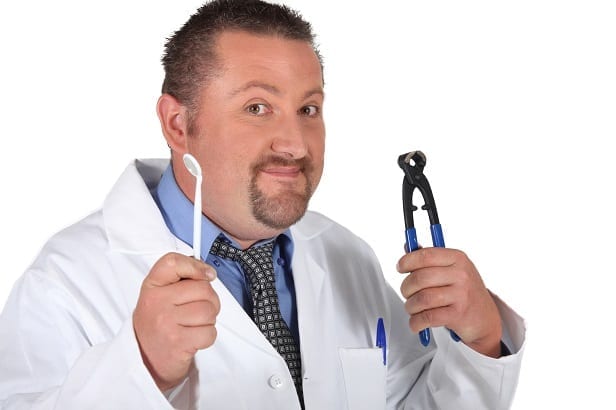
If your wisdom teeth are impacted and they can’t be treated normally or in a palliative manner, your dentist will likely refer you to an oral surgeon specialist to discuss the best course of action. This is also what he’ll do if you have medical conditions that increase your risk of surgery problems or if cleanup isn’t working on your painful impaction.
- Asymptomatic Wisdom Teeth Management: There are impacted wisdom teeth that don’t showcase symptoms of pain or infection as well as apparent dental problems. They’re known as asymptomatic impacted wisdom teeth. In such cases, you have the option to let sleeping dogs lie and leave the teeth alone. However, there are debates within the dental industry in asymptomatic impaction management. There are dentists that recommend you err on the side of caution and remove the wisdom teeth anyway before painful symptoms can develop.
The oral surgeons and dentists that recommend the removal of asymptomatic impaction argue that it prevents future potential problems. The arguments for removal include the following:
- Err on the side of caution.
- An asymptomatic wisdom tooth isn’t necessarily disease-free.
- Younger adults are less likely to experience serious complications from wisdom teeth impaction.
- It’s often hard to access and clean any impacted tooth properly, especially if you lack mouth or jaw space for them to erupt.
- The wisdom tooth impaction is more difficult to deal with and can cause later complications down the line, especially if you’re an older adult or senior citizen.
Dentists who advocate for a more conservative approach argue that removal can sometimes do more harm than good. The arguments against removal include the following:
- Let sleeping dogs lie.
- When problems do arise that’s the best time to recommend surgical tooth removal.
- The risk and expense of the procedure usually don’t justify the benefit if the teeth are asymptomatic and doesn’t actually do harm.
- There isn’t enough irrefutable proof suggesting that impacted wisdom teeth that don’t cause problems to young adults will later cause problems to older adults.
- The conservative approach to asymptomatic wisdom tooth management involves tooth decay monitoring by your dentist as well as checking for gum disease and complications.
Surgical wisdom tooth extraction is usually called for during these instances:
- Tumors or cysts from the impaction.
- Partially erupted wisdom tooth decay.
- Gum disease and infection involving the impacted teeth.
- The offending tooth or teeth are damaging neighboring teeth.
Extraction is almost always done in a single outpatient appointment, thus allowing you to go home the same day after the procedure is over.
- The Process of Surgically Extracting Wisdom Teeth: Surgically extracting an offending impacted wisdom tooth or teeth entails the following.
- Local or General Anesthesia or Sedation Dentistry: You can get local anesthesia to numb your mouth as you’re prepped for surgery. You can also get general anesthesia or sedation dentistry to you put you unconscious. Actually, sedation depresses your consciousness while general anesthesia puts you to sleep.
- The Actual Tooth Extraction: During the extraction process, your oral surgeon or dentist makes an incision into your gums. Any bone that blocks access to the impacted tooth’s root is removed. The tooth is then removed either as a hole but usually by sliced up chunks. Afterwards, the surgeon closes the wound with stitches then packs the empty socket or space with gauze to stop the bleeding.
- The Side Effects of Undergoing Wisdom Tooth Surgery: Some pain and bleeding might result from extracting your wisdom tooth, especially since the extraction required carving deep into your jawbone. The gums where the surgery took place could also swell along with your jaw muscles. You might have temporary lockjaw wherein you have trouble opening your mouth wide because of the inflammation.
You will receive step-by-step instructions on how to care for your wounds and be prescribed medication to manage the swelling and pain. Aside from taking painkillers, you could also use cold compresses for the sake of inflammation reduction.
Much less commonly, some patients may experience the following:
- Nearby Damage: Nearby body parts such as your teeth, nerves, jawbones, and sinuses could end up damaged from the trauma of surgery.
- Painful Dry Socket: If the post-surgical blood clot is lost from the tooth socket, you could end up with a painful dry socket complication.
- Bacterial Infection: Your socket could be infected with bacteria or irritated by trapped food particles that the same bacteria could feed into as well.
Have these issues treated ASAP. If symptoms persist, consult your dentist.
- Prevention: The tooth impaction itself isn’t preventable. However, it helps immensely to keep a regular six-month dental appointment wherein you get checkups twice a year for prophylaxis cleaning and some such. It’s your oral or dental tune-up two times a year. Regularly update your x-rays as well to see if you’re developing an impaction. Naturally, you should also observe excellent oral hygiene for good measure.
The Bottom Line

Impacted wisdom teeth are quite painful. On one hand, they’re mostly problematic, they’re about as useful and removable as the appendix, and they cause all sorts of problems to other teeth and the surrounding gums. On the other hand, there are some cases wherein impacted wisdom teeth don’t cause immediate or apparent issues, like an appendix that hasn’t burst and resulted in appendicitis. For the most part, you can leave them alone and don’t need to remove them.
However, certain impactions result in the development of gum flaps that are difficult to clean normally with brushing, flossing, and mouthwash. Therefore, these teeth can make your mouth more vulnerable to gum disease and tooth decay. In such cases, it’s better to remove these teeth to help prevent possible periodontal diseases and tooth root infections down the line. An oral surgeon is usually tasked to remove wisdom teeth since it’s a complicated process involving cutting into the gum itself and slicing apart the tooth piece by piece.
Thantakit International Dental Center is Thailand’s longest established dental center. Situated in Bangkok, our clinic is renowned across the world as a destination for world-class dentistry, with most of our patients flying to us from Australia.
Please contact us today and get a FREE dental consultation.



